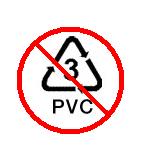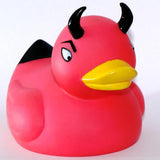Phthalates, or phthalate esters, are a group of chemical compounds often used in manufacturing. They are widely used in the manufacture of plastics (especially PVC products) including plastic bags, garden hoses, plastic bottles, food storage containers, and toys. They are used as solvents or fragrance in perfumes, nail polish, soaps, shampoos, hair spray, adhesives, caulk, and paint pigments. Testing undertaken by the Environmental Working Group revealed that phthalates appear in around 75% of all personal care products. However, since they are components of “fragrance”, they are not explicitly listed on product ingredient labels.
Phthalates are controversial because many studies have shown a link between high doses of phthalates and hormonal activity with effects including damage to the liver and testes and birth defects. In 2004, a joint Swedish-Danish research team found a very strong link between allergies in children and certain phthalates. Testing conducted by the US Center for Disease Control and Prevention (CDC) revealed that a majority of Americans have metabolites of multiple phthalates in their urine. A study published in 2008 emphasized that baby care products are of particular concern for infant exposure to phthalates. Use of leading brands of infant lotion, infant powder, and infant shampoo were associated with increases in phthalate metabolites in infant urine. The study suggests that skin exposure contributes significantly to phthalates in this population. Because of infants’ high exposure to baby care products per body area, their limited metabolic capabilities, and their developing endocrine and reproductive systems, they are especially vulnerable to potential adverse effects of phthalates.
Because of these and other concerns, the use of some phthalates is restricted in California, Washington, Vermont, and the European Union, primarily for plasticized baby toys that can be taken into the mouth. Despite intense lobbying from Exxon Mobil, the US recently enacted a ban on phthalates in children's products; the new ban takes effect in 2009.

As a rule of thumb, try to avoid PVC plastic items and containers - you can identify them by the Number 3 plastic recycle symbol. Other things to watch out for include:
- Paints: Paints often contain phthalates as solvents, so choose no-VOC or low-VOC paints when possible. If using conventional paints, make sure the space is well-ventilated.
- Fragrances: Diethyl Phthalate (DEP) is often used as a fragrance component, but is not required to be listed as an ingredient. In general, avoid products that have the generic word “fragrance” in their ingredients. Products made with essential oils are a safe alternative.
- Synthetic Air Fresheners: As with fragrance in personal care products, most conventional air fresheners contain phthalates. Again, products made with essential oils are safe alternatives.
- Nail Polish: Dibutyl Phthalate (or “DBT”) is often used to make nail polish chip-resistant. Avoid polish that includes this ingredient.
- Kitchen Plastics: Phthalates are generally more likely to leach out of plastic when it’s heated, so avoid cooking or microwaving items in plastic containers.
- Soft Plastic Toys: Don't give them to children – instead, opt for toys made from wood, cotton, or other phthalate-free materials, especially during ages when children tend to put everything in their mouths!
- Vinyl Products: Vinyl is used in many different products, including building materials, garden hoses, lawn furniture, and some items of clothing (like raincoats or belts). One easy change you can make: switch to a non-vinyl shower curtains and liners. The strong “new shower curtain” smell results from chemical off-gassing, and indicates that your shower curtain is a source of phthalates in your home.
DwellSmart strives to minimize phthalates in our product line. Our personal care and cleaning products are either unscented or use essential oils and other natural ingredients for fragrance. For baby care, we offer glass baby bottles, phthalate-free pacifiers, and organic cotton and wooden toys.
For more info on phthalates, see Wikipedia.

